-
Recent Posts
Categories
Blog Post Archives
Signup for Mailing List
Author Archives: Robyn
Simply Imperfect.
Wabi-Sabi Weekend: The Art of Tea, The Art of Life
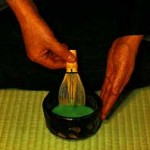
On Wabi-Sabi Weekends, I post excerpts from my book, Simply Imperfect: Revisiting the Wabi-Sabi House.
“The art of chanoyu consists in nothing else but in boiling water, making tea, and sipping it.” — Tea Master Sen no Rikyu
Though most Westerners don’t see the delight in spending four hours kneeling (painfully) to watch someone build a charcoal fire and whisk a bitter green powder known as matcha into a froth, Chanoyu, or Tea (literally “hot water for … Continue reading
Posted in Wabi-Sabi
Tagged Sen no Rikyu, tea ceremony, Tea ceremony history, wabi-sabi and Tea, wabi-sabi history
Leave a comment
Wabi-Wabi Weekend: What Do These Words Mean?
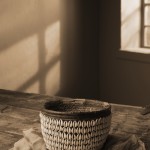
On Wabi-Sabi Weekends, I post excerpts from my book, Simply Imperfect: Revisiting the Wabi-Sabi House.
Sitting quietly, doing nothing
Spring comes, and the grass grows by itself.
—Zenrin, The Gospel According to Zen
Wabi stems from the root wa, which means harmony, peace, tranquility, and balance. In early Japanese poetry, wabi meant sad, desolate and lonely, but also simple, humble by choice and in tune with nature.
Until Zen Buddhism became widespread in the 14th century, wabi was a … Continue reading
Posted in Wabi-Sabi
Tagged sabi definition, wabi definition, wabi-sabi, wabi-sabi definition, what is wabi-sabi?
Leave a comment
Wabi-Sabi Weekend: The Benefits of Downsizing

On Wabi-Sabi Weekends, I post excerpts from my book, Simply Imperfect: Revisiting the Wabi-Sabi House.
“I want to spend the time I have doing things that make my heart rage.” — Buck Howard
Letting go of commitments we’re not fully committed to and stuff we don’t care about (but have to take care of) is a gift greater than gold—and an ability worth cultivating.
My first taste of simplicity’s promise came from Duane Elgin’s 1981 bestseller, Voluntary Simplicity. … Continue reading
Posted in Happy Home, Wabi-Sabi
Tagged downsizing, Duane Elgin, simple home, simple living, tiny homes, Voluntary Simplicity, wabi-sabi simplicity
Leave a comment
Wabi-Sabi Weekend: William Morris and the Arts and Crafts Revolution
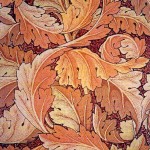
On Wabi-Sabi Weekends, I post excerpts from my book, Simply Imperfect: Revisiting the Wabi-Sabi House.
“It is common now to hear people say of such and such a piece of country or suburb: ‘Ah! It was so beautiful a year or so ago, but it has been quite spoilt by the building.’ Forty years back the building would have been looked on as a vast improvement; now we have grown conscious of the hideousness we are creating, and we … Continue reading
Wabi-Sabi Weekend: A Modern Tea Master Hits the Road

On Wabi-Sabi Weekends, I post excerpts from my book, Simply Imperfect: Revisiting the Wabi-Sabi House. This week’s post is about Guisepi Spadafora, a longtime wabi-sabi hero and friend who embarked this week on a two-year North American Free Tea Tour. Guisepi will serve free tea, spark good conversation and spread community far and wide in a journey that he describes as “a questioning and search for the meaning of freedom across this great land.”
“We find after years of … Continue reading
Posted in Wabi-Sabi
Tagged Free Tea Party, free tea tour, Guisepi Spadafora, tea party tour
Leave a comment
Wabi-Sabi Weekend: Shibui and Mid-Century Modern

On Wabi-Sabi Weekends, I post excerpts from my book, Simply Imperfect: Revisiting the Wabi-Sabi House.
In the 1960s, the crisp, understated (Shaker-like) Danish furniture made by Hans Wegner, Borge Mogensen, and Arne Jacobsen delighted the design world. Danish modern furniture,, finished only with a sandpaper rubdown or linseed oil and embellished sparingly with natural materials such as leather, cotton and linen, was a breath of fresh air in an environment cluttered with all the new plastics … Continue reading
Wabi-Sabi Weekend: A Quiet Home is a Peaceful Home
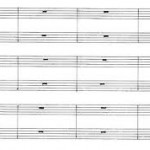
On Wabi-Sabi Weekends, I post excerpts from my book, Simply Imperfect: Revisiting the Wabi-Sabi House.
“O Great Spirit, help me always … to remember the peace that may be found in silence.”—Cherokee prayer
In describing his days at Walden Pond, Henry David Thoreau writes of summer mornings spent sitting in his sunny doorway, “in undisturbed solitude and stillness, while the birds sang amid or flittered noiseless through the house, until by the sun falling in at my west window, … Continue reading
Wabi-Sabi Weekend: Tea for the Masses
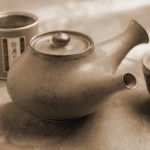
On Wabi-Sabi Weekends, I post excerpts from my book, Simply Imperfect: Revisiting the Wabi-Sabi House.
“A fire is made, water is boiled and tea is served; this is all that is needed here. No other worldly considerations are to intrude.” – Sen no Rikyu
Wabi-sabi’s roots lie in Zen Buddhism, brought from China to Japan by 12th-century traveling monk Esai, who also picked up a few tea seeds while he was there. Zen, with its principles of “vast … Continue reading

